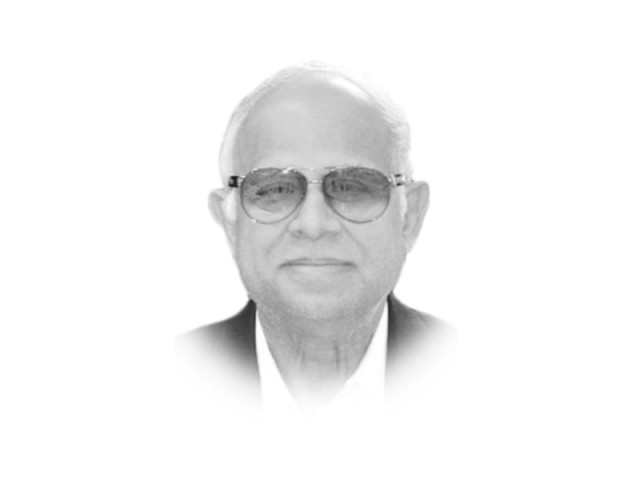Democracy & national security
Can we afford to have habitual liars and perennial cheats as our leaders?

The community, which is the basic ingredient of democracy, has not been involved in building the narrative of good governance. Malfunctioning of civilian government institutions over a protracted time has dire repercussions for the inner security of the country. Failed functions may be because of various reasons, the prime among these being a penchant for nepotism and corruption, the essence of national security is to ensure accountability across the board. Almost extinct all across the world, feudalism is not only alive and well but flourishing in Pakistan. A close cousin of feudalism, nepotism ensures inefficiency and bad governance. This lethal combination of corruption and nepotism does not let democracy function effectively.
A national state founded on ideology rather than historical and geographical boundaries like Pakistan has its fundamental basis on the premise that the inhabitants of the country form a national identify with their country and accept all Pakistanis as equal parts of that nation. If this is not the case, those excluded or treated unequally, like East Pakistanis in 1971, would find it difficult to identify whole-heartedly with the nation and the country. This creates political and consequently, security-related problems. In a country like Pakistan where the population differs not only in its ethnicity and culture, and the various sects of religion but also with regard to social organisation (tribal, biradris) coupled with economic under-development, there are multiple hazards that can and do challenge national unity.
Erdogan’s election as president in Turkey was only possible because he and his party had delivered good governance in a polarised society. In a country like Pakistan with ethnic, sectarian and tribal differences “proportional representation” in order of priority of the percentage of votes is a must to ensure all stakeholders in the electorate have a voice in parliament and do not feel excluded, i.e., 25 per cent of the seats in the national and provincial assemblies must be reserved for losing candidates who must be deemed elected according to the percentage of individual party votes. The Senate must be voted in by direct elections, the present indirect election is subject to fraud and manipulation. A foolproof electoral system is required to ensure that fraud is not perpetuated at the ballot box, we would not have had the “Long March” today if the sanctity of the electoral process had not been called into question.
Accountability of the potential candidates is a must. Any candidate aspiring for elections must file the assets and income tax statement and that of the immediate family. These must be audited by two audit firms on the State Bank of Pakistan’s approved list. Any discrepancy would mean automatic disqualification. No accountability will ever be complete without applying the laws of perjury (that do exist but are never applied) strictly. Can we afford to have habitual liars and perennial cheats as our leaders? By the same token anyone found guilty of vote and/or ballot box tampering (or assisting in this) should be disqualified along with members of his immediate family.
Our politicians (and some of our military leaders) mistake their personal and selfish interests for the national ones, they want to pursue the exercise of power exclusively while paying only lip service to the essence of national security, the legitimate interests and aspirations of the masses. One cannot have the elements of national security guarding democratic dispensation without adhering to the spirit and content of good governance.
Published in The Express Tribune, August 14th, 2014.
Like Opinion & Editorial on Facebook, follow @ETOpEd on Twitter to receive all updates on all our daily pieces.
















COMMENTS
Comments are moderated and generally will be posted if they are on-topic and not abusive.
For more information, please see our Comments FAQ